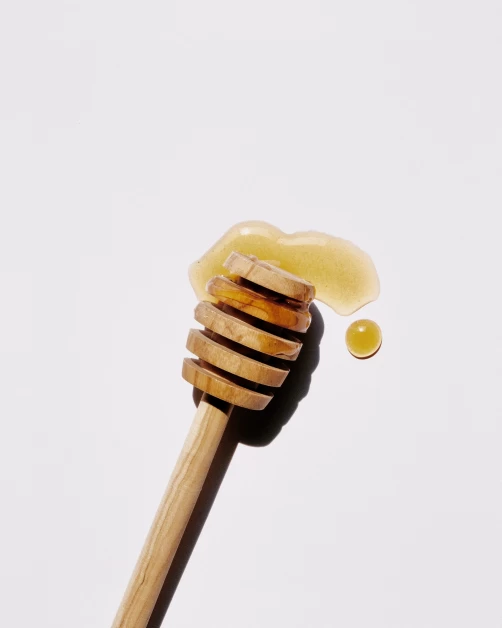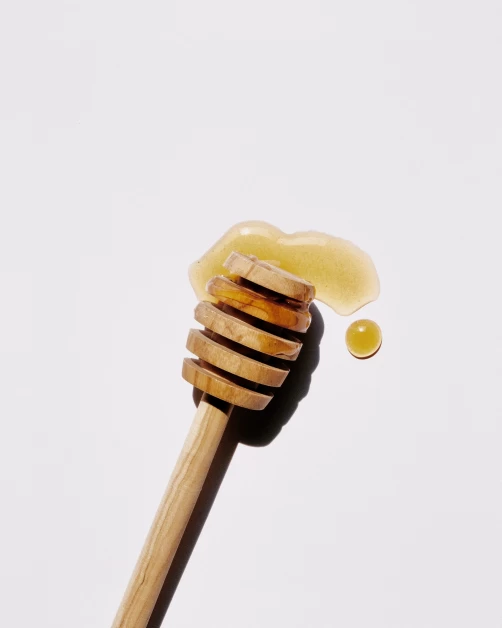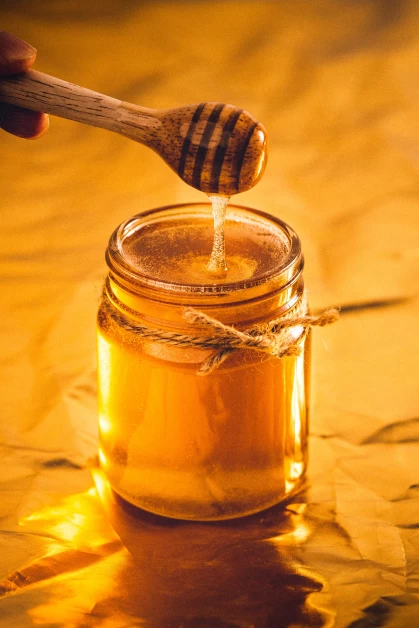Note: This is a rewritten article in markdown format to match the original structure.
Introduction
When it comes to finding the best Manuka Honey, it can be quite an adventure. This natural elixir, produced by bees from the nectar of New Zealand’s native Manuka bush, is highly valued for its medicinal properties and delicious flavor. With so many brands to choose from, it can be overwhelming to find the most authentic and beneficial Manuka honey. In this guide, we will explore some of the top Manuka honey brands available in New Zealand and help you navigate your way to better health.
Our Top Picks
In a market filled with counterfeit options and confusing grading systems, it is important to distinguish the genuine from the false. However, finding the best Manuka honey doesn’t have to be a challenge. We have reviewed some of the most popular Manuka honey brands available in New Zealand and ranked them based on their authenticity, taste, and overall value. These brands all offer the coveted antibacterial properties of Manuka honey and taste amazing. So let’s embark on this sweet journey towards better health!
Choosing the Best Manuka Honey Brands
Choosing Manuka honey is not just about buying a jar, it’s about choosing an experience. We have considered the authenticity of the best Manuka honey brands, ensuring that they are of high quality and sourced directly from the New Zealand Manuka bush. We have also taken into account the overall customer experience, from the virtual presentation to the service and value provided by each company.
When choosing Manuka honey, it is important to understand the unique Manuka factor (UMF) created by the UMF Association, as well as other grading systems that ensure the potency of the honey. We have also looked at the company’s profile, processing techniques, sustainability practices, website resources, shipping costs, buyer programs, and delivery times. With all of these factors in mind, we have ranked the best Manuka honey brands available.
Best Manuka Honey in 2023
New Zealand Honey Co
Specifications:
– Unique Manuka Factor: 5+ – 28+
– MGO Number: 83+ – 1450+
– Shipping: $7.99
– Delivery Time: 2 business days
New Zealand Honey Co offers a wide range of options, but we have chosen their UMF certified 5+ Manuka honey as our top pick. This monofloral Manuka honey is produced in Aotearoa, New Zealand, and is pure and authentic. It has a light amber color with a subtle floral aroma and a pleasantly mild taste. This honey is perfect for use in cooking or as a natural sweetener. Every bottle of honey from New Zealand Honey Co comes with a QR code that allows you to trace the origins of your honey and ensures its authenticity. The company also offers a rewards program and a personalized subscription service for easy reordering.
Steens
Specifications:
– Unique Manuka Factor: Multi-floral – UMF 24+
– Shipping: $5
– Delivery Time: 3 business days
Steens Manuka Honey is another top pick for its high quality and delicious taste. They offer a range of Manuka honey options, from multi-floral to UMF rating 24+. Their UMF 10+ honey is thick and grainy with a dark amber color and robust flavor. Steens uses their own whole-comb technology to extract the honey, ensuring that it retains all of its natural pollens, enzymes, and health benefits. They also offer personalized traceability, allowing you to learn about the specific geographic location where your Manuka flowers grow. Steens is a transparent company with many certifications and partnerships, making them a trustworthy choice.
Wedderspoon
Specifications:
– Unique Manuka Factor: Multifloral Manuka Honey K Factor 12 or 16
– Shipping: $18+
– Delivery Time: 5 business days
Wedderspoon Manuka Honey offers a variety of good quality Manuka honey products, including their K Factor monofloral and poly-floral honey. Their honey is traceable to New Zealand’s manuka plant, offering various health benefits and medicinal properties. They offer a range of options, from multi-floral honey with K Factor 12 to monofloral Manuka honey with K Factor 16. Wedderspoon’s honey has a slightly granular texture and a deliciously sweet flavor. While they do not provide visible traceability on their website, they have many certifications and a wealth of information available on their blog. They also offer a rewards program and free shipping on orders over $50.
Manukora
Specifications:
– Unique Manuka Factor: 24+
– MGO Number: 200
– Shipping: $7.99
– Delivery Time: 5 business days
Manukora Manuka Honey is known for its high MGO levels and superb antibacterial properties. Their honey is peachy in color with a smooth and creamy texture. It has a tangy and zesty flavor with a hint of burnt toffee. Manukora offers a range of MGO alternatives, allowing you to find the perfect match for your needs. They provide detailed testing information and each product has its own QR code for authenticity verification. Manukora is a newer company but has quickly gained a reputation for its high-quality honey. They offer reasonable shipping rates and have certifications for non-GMO and glyphosate-free.
Comvita
Specifications:
– Unique Manuka Factor: Multifloral – UMF 20+
– Shipping: Free within US
– Delivery Time: 6 business days
Comvita Manuka Honey is a well-respected New Zealand company known for its high-quality honey and health benefits. They offer a range of honey, from multi-floral to UMF 20+. Their honey has a golden brown color and a dark earthy taste. While Comvita does not provide visible traceability on their website, they have many certifications and partnerships that ensure the authenticity and quality of their honey. They offer free shipping within the US and have ongoing sales and discounts available. Comvita is committed to sustainability and has partnerships with organizations dedicated to climate action and wildlife conservation.
Waitemata
Specifications:
– Unique Manuka Factor: 10+
– Shipping: Free
– Delivery Time: >3 weeks
Waitemata Manuka Honey specializes in a variety of native New Zealand-based honey, including Manuka honey. They offer multi-floral and UMF 20+ honey, among others. Waitemata honey has a golden brown color and a dark, rich flavor. While they do not provide visible traceability on their website, they have a personalized email system that provides tracking information for your honey. They offer free shipping and have a range of certifications to ensure the authenticity and quality of their honey. Waitemata is committed to sustainability and has partnerships with organizations dedicated to wildlife conservation and education.
How to Choose the Best Manuka Honey
Choosing the best Manuka honey requires considering several factors. The texture, taste, color, and grading system all play a role in determining the quality and authenticity of the honey. Here are some tips for choosing the best Manuka honey:
Texture
Good quality Manuka honey is thick and often in solid or near-solid form. The less processing, the thicker and more nutritious it is. The texture is also an indicator of the honey’s hygroscopic properties, which contribute to its antibacterial abilities.
Taste
The taste of Manuka honey can vary depending on factors such as the bee, climate, flora, and soil. It is important to find a taste that you enjoy, as you are more likely to benefit from the honey’s medicinal properties if you enjoy consuming it.
Color
The color of Manuka honey can range from cream to dark amber. Darker honeys tend to have more intense flavors and higher concentrations of antioxidants. Lighter honeys have a milder flavor and are more suitable for daily use.
Monofloral vs. Polyfloral
Monofloral Manuka honey is considered the best in terms of medicinal properties, as it comes from the Manuka plant. However, polyfloral honey can still offer health benefits and is often more palatable to those who do not enjoy the strong flavor of monofloral honey.
How is Manuka Honey Processed?
Manuka honey is processed differently depending on the brand and their specific techniques. Some brands use cold-pressing methods to extract the honey and retain its natural properties, while others may use heat to make the honey easier to work with. It is important to choose a brand that uses minimal processing and retains the honey’s natural enzymes and nutrients.
New Zealand’s Seals of Approval for Manuka Honey
New Zealand has several seals of approval for Manuka honey to ensure its authenticity and quality. The FernMark seal is a symbol of trust and authenticity that is available to all New Zealand businesses that meet specific criteria. The Unique Manuka Factor (UMF) grading system was created by the UMF Honey Association and measures the medicinal properties of the honey. The K Factor is a grading system used by Wedderspoon to comply with New Zealand’s government guidelines. It measures the amount of pollen from Manuka flowers in the honey. The MGO number measures the levels of methylglyoxal, the compound responsible for the honey’s antibacterial properties.
Manuka Honey FAQs
Why is Manuka honey different from other honey?
Manuka honey is different from other honey because it is produced by bees that collect nectar from the Manuka plant, which is native to New Zealand. It contains high levels of methylglyoxal, which has antibacterial properties and contributes to its unique flavor and health benefits.
Why is heat bad for honey?
Excessive heat can destroy the beneficial enzymes and nutrients in honey. It is best to store honey in a cool, dark place to preserve its quality.
Why does honey have an expiration date?
Honey does not expire, but it can change in color and consistency over time. The expiration date on honey is a guide to how long it can maintain its optimal quality and flavor.
My honey is fermenting, what do I do?
Fermentation is a natural process that occurs in all raw honey. If your honey is fermenting, you can place it in warm water to slow down the process. This will help to preserve the honey’s flavor and quality.
What are the nutritional benefits of Manuka honey?
Manuka honey is rich in vitamins, minerals, and antioxidants. It has antimicrobial and anti-inflammatory properties, and can be used to support immune health, improve digestion, and promote overall well-being.
Conclusion
Choosing the best Manuka honey brand can be a daunting task, but with the right knowledge and information, you can make an informed decision. By considering factors such as texture, taste, color, and grading system, you can find a Manuka honey that suits your needs and preferences. Whether you are looking for a monofloral or polyfloral honey, there are many reputable brands to choose from. Remember to look for the FernMark seal or other certifications to ensure the authenticity and quality of the honey. So embark on this sweet journey towards better health and enjoy the benefits of nature’s golden elixir!









